 Richard Rubenstein Richard Rubenstein |
|
|
The United States Institute of Peace published a special report in 2009 stating that although often underestimated, the tourism industry has the power to promote peace and stability in developing countries by providing jobs, generating income, diversifying the economy, protecting the environment, and promoting cross-cultural awareness. In 2015, the World Travel and Tourism Council (WTTC), reported that the growth of the travel and tourism sector (2.8 percent) outpaced that of the global economy (2.3 percent) and in total generated US $7.2 trillion (9.8 percent of global GDP), supporting 284 million jobs, equivalent to 1 in 11 jobs in the global economy. With these benefits in mind, the United Nations has identified the development of tourism as one of the methods developing nations can use to advance their economies.
Public relations plays an increasingly essential role in driving awareness, establishing and accelerating the popularity of less-traveled destinations among global tourists. Elsevier, a world-leading provider of scientific literature, analyzed communications in the tourism sector and found that public relations is more than a necessity as it represents a catalyst for change, a means for shaping new attitudes and for advancing an audience’s understanding and acceptance. Over the last decade, the digital sphere and social media networks have contributed to strengthening this bridge of influence and engagement.
There is indeed a significant ROI in a solid, competitive and comprehensive communications and influencer program that delivers consistency and targeted results. According to a global study by Nielson, 92 percent of consumers said that they trusted earned media, which includes publicity, recommendations from friends and family members, more than any other form of advertising. Additionally, WAYN (Where Are You Now?) reported that 52 percent of respondents changed their travel plans after researching their trip using social media; and 52 percent of Facebook users said that their friends’ travel photos had inspired their own vacation choices. In today’s fast-moving digital environment, sharing positive travel experiences online can influence the masses by enhancing their perceptions of a country.
Take for example, Rwanda, the verdant East African nation that is home to some of the world’s rarest wildlife and most breathtaking landscapes. Rubenstein Public Relations was retained to help raise awareness of the peaceful and progressive country it is today and elevate its visibility, appeal and competitive edge among its African neighbors. With a strong focus on wildlife conservation, Rwanda has put in tremendous efforts to save and protect its mountain gorillas, one of the most endangered species in the world. Beyond providing a safe, stable environment, a key component of their conservation program included the annual Kwita Izina naming ceremony for baby gorillas, which enables ecologists to track their growth and watch for potentially dangerous environmental issues. Another key aspect of their conservation efforts included the arrival of seven lions from South Africa to diversify and balance Rwanda’s eco-system, while also helping to increase visitors to Rwanda’s Akagera National Park.
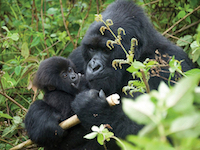 Rwanda has launched tremendous conservation efforts in an attempt to protect that nation’s mountain gorillas, now one of the most endangered species in the world. Rwanda has launched tremendous conservation efforts in an attempt to protect that nation’s mountain gorillas, now one of the most endangered species in the world. |
We invited select reporters from key markets around the world to experience Rwanda and its remarkable eco-tourism. Our tourism campaign also featured a host of other attractions including an exhilarating safari route, bird watching and canopy tours, miles of beautiful caves, and spectacular lakefront resorts. Additionally, Kigali, the nation’s capital, is a rich cosmopolitan center offering cultural, business and sporting events, a bustling nightlife and a vibrant fashion scene. Travel editors and writers embraced Rwanda as their latest ‘discovery,’ resulting in more than two billion media impressions within a six-month timeframe. According to the WTTC, the direct impact of travel and tourism in 2015 grew by 7.1 percent and Rwanda is expected to attract more than 1 million international tourist arrivals this year alone.
On trend with tourism growth in Africa lies Angola, a nation that the WTTC declared in its latest report to be one of the fastest-emerging tourism destinations in the world. One of RPR’s current clients is an international investment firm dedicated to creating global value for developing countries in Africa while contributing to their economic development. Along with many partners in the market developing the country’s profile of global economic stability, our client is supporting and investing in the growth of Angola’s tourism and hospitality sector. RPR devised a dynamic communications campaign that helps support the company’s objectives by publicizing the various investment opportunities emerging in the region. We continue to generate a wide range of international coverage in both business and consumer press. An economic narrative may be as compelling as traditional tourism exposure for projecting an image of market stability — an important factor for attracting foreign visitors. Reinforcing the above mentioned WTTC report and Angola’s underlying potential, a recent study released by the Ministry of Hotels and Tourism announced that by 2020, Angola is expected to host 4.6 million tourists who will provide an estimated revenue of $4.7 billion. A strong tourism industry can also help emerging countries to self-sustain rather than to rely on outside investment to boost their economies.
As the regulatory climate and travel restrictions continue to evolve, developing countries have more opportunities to transform their global image through strategic communications programs that showcase their unique attributes and cultural vibrancy. Positive, creative and consistent messaging has the power to attract audiences worldwide to unfamiliar places that are ready to be discovered as premier destinations.
* * *
Richard Rubenstein is President of Rubenstein Public Relations.

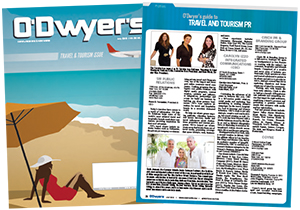

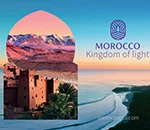 Weber Shandwick is providing PR and marketing communications services to the Moroccan National Tourist Office in New York.
Weber Shandwick is providing PR and marketing communications services to the Moroccan National Tourist Office in New York.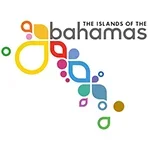 Finn Partners has filed its six-month contract with the Bahamas Ministry of Tourism, Investments & Aviation, which is worth $240K.
Finn Partners has filed its six-month contract with the Bahamas Ministry of Tourism, Investments & Aviation, which is worth $240K.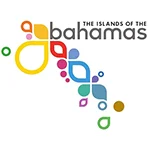 Weber Shandwick wrapped up its work for the Ministry of Bahamas at the end of 2023.
Weber Shandwick wrapped up its work for the Ministry of Bahamas at the end of 2023.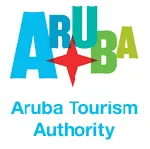 The Aruba Tourism Authority is boosting its budget 29.4 percent to $2.2M at Zeno Group, according to its 2024 contract, effective Jan. 1.
The Aruba Tourism Authority is boosting its budget 29.4 percent to $2.2M at Zeno Group, according to its 2024 contract, effective Jan. 1. As inflation continues to impact spending, consumers are revisiting their list of what they’re willing to spend more of their money on. Luckily for those in the travel industry, experiences seem to be trending up on the “splurge” list.
As inflation continues to impact spending, consumers are revisiting their list of what they’re willing to spend more of their money on. Luckily for those in the travel industry, experiences seem to be trending up on the “splurge” list. 


 Have a comment? Send it to
Have a comment? Send it to 
No comments have been submitted for this story yet.